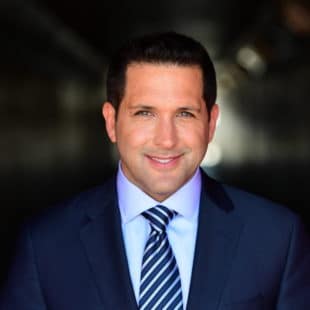Ad Disclosure
On Adam Schefter’s Methodology and the “Journalism” Hot Dog

Jon Gruden’s resignation stemmed from the leak of emails that were obtained during an investigation into the Washington Football Team. It was collateral, unrelated to the task at hand.
There was always going to be more to this. More compromising emails involving other parties, and one of those folks is ESPN’s Adam Schefter, who was the subject of additional correspondence obtained by the LA Times.
Pro Football Talk summed it up:
Via Sam Farmer and Nathan Fenno of the Los Angeles Times, a June court filing in a fight between Washington owner Daniel Snyder and former team president Bruce Allen over whether Snyder would be permitted to secure discovery materials from Allen in the ongoing quest to prove a defamation case filed by Snyder in India over an article falsely linking him to Jeffrey Epstein (that’s quite a precursor) includes some of Allen’s emails.
Most notably, some of the Jon Gruden emails to Allen, the leaking of which caused Gruden to resign as coach of the Raiders, were included in the filing, with some (but not total) redaction of Gruden’s identity.
Another aspect of the emails produced in the Arizona dispute between Snyder and Allen has created a stir. In July 2011, Allen and ESPN’s Adam Schefter corresponded regarding a story related to the efforts to conclude the lockout. Schefter actually sent Allen the full draft of a story that Schefter planned to publish, for Allen’s review and approval.
“Please let me know if you see anything that should be added, changed, tweaked,” Schefter wrote. “Thanks, Mr. Editor, for that and the trust. Plan to file this to espn about 6 am. . . .”
What that amounts to is a violation of journalism ethics. It’s considered a cardinal sin in our industry to allow a source or any outside party to edit a story or choose what’s included and excluded. At places like The New York Times or The Washington Post, it’s a fireable offense, and some of the blue checkmarks on Twitter suggested that’s what should happen with Schefter:
This is a huge breach of journalistic ethics and Adam Schefter should absolutely be investigated and/or fired. https://t.co/iBop3PAoB6
— Stephen Sanchez (@SSanchezTV) October 13, 2021
Upon further review, I’d argue that Adam Schefter is not breaching journalistic ethics because Adam Schefter is not a journalist. He’s an insider. An information broker working two phones at the same time. Of course he’s going to operate around the fringes in an effort to maintain and manage a network of sources.
The nature of news breaking requires a LOT of give and take, and consumers might not realize this. You’re constantly managing relationships, texting with coaches and players, and making concessions. Very rarely is textbook journalism being done by the big information merchants in sports, which is infinitely less important than the journalism that actually matters, like the information we get from reporters in Baghdad and Kabul.
The final product you receive from guys like Schefter and Woj is akin to a hot dog. What I mean is that it tastes good, and is packaged appropriately, but there are a lot of highly suspect parts that go into the frank. Muscle trimmings and fat and other stuff that is not palatable or desirable in a vacuum. You need to make a series of moves and go through a lengthy process in order to place the final journalism weiner in the bun. And then Joey Chestnut eats it in three seconds.
I’ll give you an example, and this is a true story:
- Circa 2015, a trustworthy source gives me a great story, about a guy who was injured and done for the year. Nobody else had this story.
- Source calls me 30 minutes later and says “hey can you hold this story, I screwed up.”
- I hold the story.
- Source says, “sorry, I need you to not run this, can you do that for me?“
- I say, “okay, but you have to give me something else in the future“
- Source gives me a different story two weeks later.
If I break the first story, I get a big scoop, but piss off the source, and might lose that person forever. But in making the concession, I maintained that relationship and got the fans something different, but also useful. And as a consumer given the choice between something or nothing, wouldn’t you select the former?
It’s a messy business. Schefter cutting corners when it comes to a labor dispute is not a good look, but nobody should be surprised by his methods. Most of the information traffickers who dominate the breaking news world are constantly walking the ethical balance beam.
Kevin has been writing about Philadelphia sports since 2009. He spent seven years in the CBS 3 sports department and started with the Union during the team's 2010 inaugural season. He went to the academic powerhouses of Boyertown High School and West Virginia University. email - k.kinkead@sportradar.com